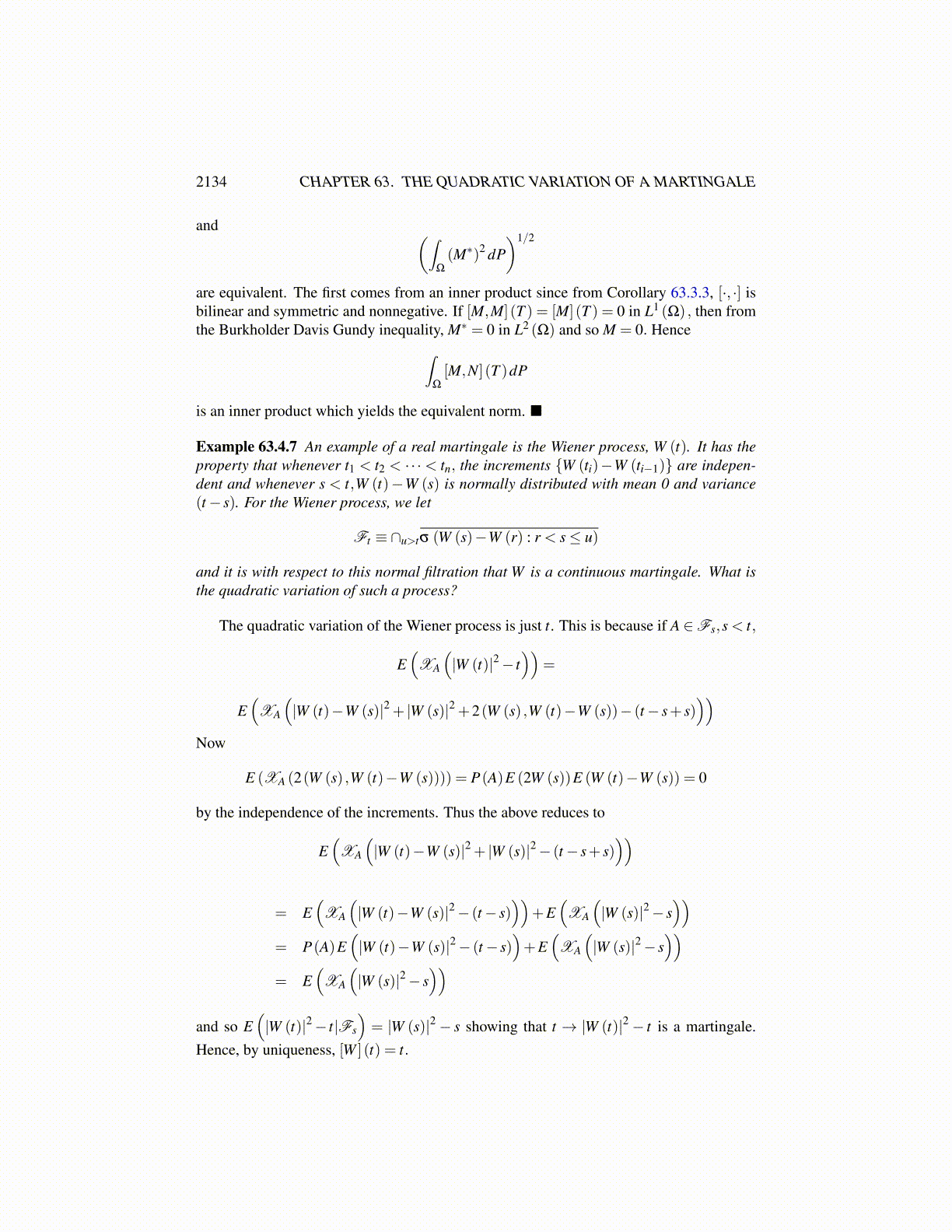
2134 CHAPTER 63. THE QUADRATIC VARIATION OF A MARTINGALE
By Theorem 62.11.3 this is no larger than
P([N∗ > 0])δ
2λ
2
λ2(
1−δ2)+δ
2λ
2= P([N∗ > 0])δ
2
≤ P([τ < ∞])δ2 = P
([([M] (T ))1/2 > λ
])δ
2
Now by the good lambda inequality, there is a constant k independent of M such that∫Ω
F(([M] (T ))1/2
)dP≤ k
∫Ω
F (2M∗)dP≤ kC2
∫Ω
F (M∗)dP
by the assumptions about F . Therefore, combining this result with the first part,
(kC2)−1∫
Ω
F(([M] (T ))1/2
)dP ≤
∫Ω
F (M∗)dP
≤ C∫
Ω
F(([M] (T ))1/2
)dP
Of course, everything holds for local martingales in place of martingales.
Theorem 63.4.4 Let {M (t)} be a continuous H valued local martingale, M (0) = 0, whereH is a separable Hilbert space and t ∈ [0,T ] . Then if F is a function of the sort describedin the good lambda inequality, that is,
F (0) = 0, F continuous, F increasing,
F (αx)≤ cα F (x) ,
there are constants, C and c independent of such local martingales M such that
c∫
Ω
F([M] (T )1/2
)dP≤
∫Ω
F (M∗)dP≤C∫
Ω
F([M] (T )1/2
)dP
whereM∗ (ω)≡ sup{||M (t)(ω)|| : t ∈ [0,T ]} .
Proof: Let {τn} be an increasing localizing sequence for M such that Mτn is uniformlybounded. Such a localizing sequence exists from Proposition 63.2.2. Then from Theorem63.4.3 there exist constants c,C independent of τn such that
c∫
Ω
F([Mτn ] (T )1/2
)dP ≤
∫Ω
F((Mτn)∗
)dP
≤ C∫
Ω
F([Mτn ] (T )1/2
)dP
By Corollary 63.3.3, this implies
c∫
Ω
F((
[M]τn)(T )1/2
)dP ≤
∫Ω
F((Mτn)∗
)dP
≤ C∫
Ω
F((
[M]τn)(T )1/2
)dP